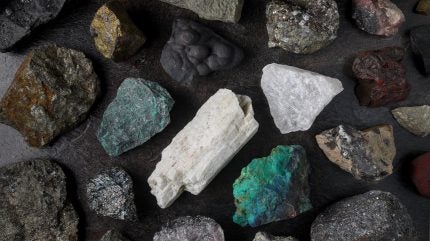
India has reportedly requested state-owned miner IREL to suspend rare earth exports to Japan, a move that could affect a 13-year-old supply agreement, reported Reuters, citing sources.
The decision aims to meet domestic needs and reduce reliance on China for these critical materials.

Discover B2B Marketing That Performs
Combine business intelligence and editorial excellence to reach engaged professionals across 36 leading media platforms.
This strategic shift comes as China has limited its rare earth exports, which are essential for high-tech industries including electric vehicle (EV) manufacturing.
India, which has the world’s fifth-largest rare earth reserves but lacks domestic magnet production, imported 53,748 tonnes (t) of rare earth magnets in the fiscal year to March 2025, mainly from China.
In a recent meeting, Indian Commerce Minister Piyush Goyal directed IREL to halt the export of rare earths, particularly neodymium, a crucial element for producing magnets used in EV motors.
The Commerce Ministry, IREL, and the Department of Atomic Energy, which oversees IREL, have yet to comment on the matter, the report said.

US Tariffs are shifting - will you react or anticipate?
Don’t let policy changes catch you off guard. Stay proactive with real-time data and expert analysis.
By GlobalDataUnder the 2012 agreement, IREL supplies rare earths to Toyotsu Rare Earths India, a subsidiary of Toyota Tsusho, for processing and subsequent export to Japan.
In 2024, Toyotsu shipped more than 1,000t of rare earth materials to Japan, a significant portion of the 2,900t mined by IREL. Despite this, China remains Japan’s primary source for rare earths.
With China’s recent export restrictions causing global supply chain concerns, IREL is looking to retain its rare earths for domestic expansion in mining and processing.
The company is currently awaiting statutory clearances to proceed with four mines. However, an immediate halt to exports to Japan may not be feasible due to the bilateral nature of the existing agreement.
Japan’s Trade Ministry has refrained from commenting on specific bilateral exchanges.
India’s move to conserve its rare earths aligns with the recently launched National Critical Mineral Mission (NCMM), which seeks to ensure self-reliance in critical minerals essential for clean energy technologies.
The NCMM supports India’s climate goals including reducing emissions intensity and achieving net-zero emissions by 2070. The strategy includes securing critical mineral supply chains through domestic exploration and overseas asset acquisition.





